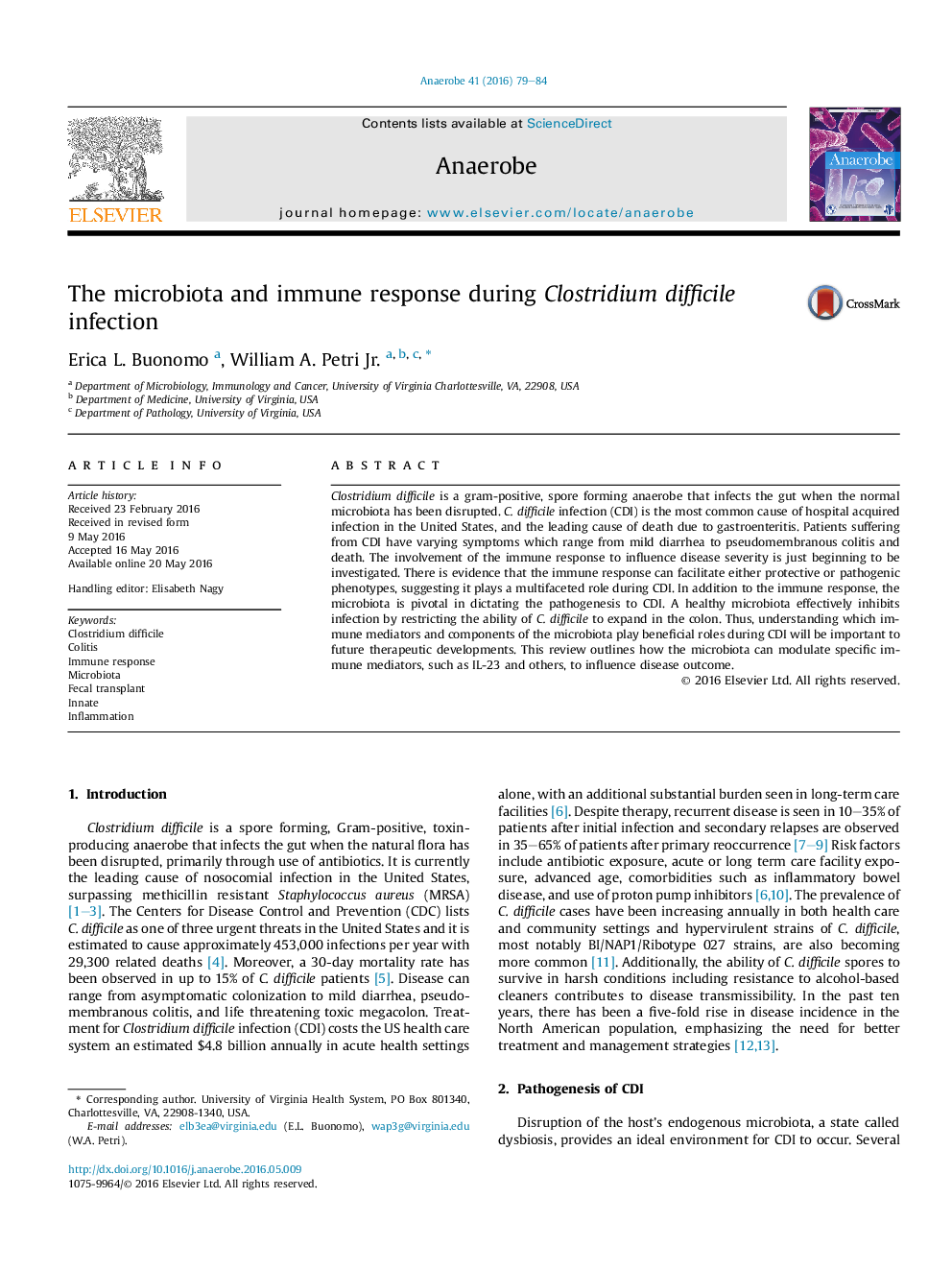| کد مقاله | کد نشریه | سال انتشار | مقاله انگلیسی | نسخه تمام متن |
|---|---|---|---|---|
| 5671259 | 1592823 | 2016 | 6 صفحه PDF | دانلود رایگان |
- Clostridium difficile infection (CDI) causes a wide range of patient symptoms.
- Microbiota outcompetes C. difficile for space and nutrients and regulates bile acids to prevent pathogen outgrowth.
- The immune response to CDI can influence disease severity.
- An altered microbiota shapes mucosal immune responses.
Clostridium difficile is a gram-positive, spore forming anaerobe that infects the gut when the normal microbiota has been disrupted. C. difficile infection (CDI) is the most common cause of hospital acquired infection in the United States, and the leading cause of death due to gastroenteritis. Patients suffering from CDI have varying symptoms which range from mild diarrhea to pseudomembranous colitis and death. The involvement of the immune response to influence disease severity is just beginning to be investigated. There is evidence that the immune response can facilitate either protective or pathogenic phenotypes, suggesting it plays a multifaceted role during CDI. In addition to the immune response, the microbiota is pivotal in dictating the pathogenesis to CDI. A healthy microbiota effectively inhibits infection by restricting the ability of C. difficile to expand in the colon. Thus, understanding which immune mediators and components of the microbiota play beneficial roles during CDI will be important to future therapeutic developments. This review outlines how the microbiota can modulate specific immune mediators, such as IL-23 and others, to influence disease outcome.
Journal: Anaerobe - Volume 41, October 2016, Pages 79-84
